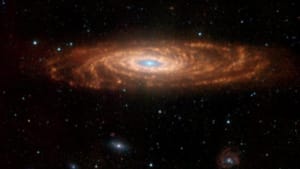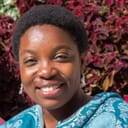Stay in the Loop
BSR publishes on a weekly schedule, with an email newsletter every Wednesday and Thursday morning. There’s no paywall, and subscribing is always free.
The universe inside
School reunions in a pandemic make us wonder what could have been, but are we looking in the wrong direction?

This year, my Covid-delayed, 15-year college reunion happened just a few weeks before my on-schedule 20-year, high-school reunion, and they both hit me particularly hard. Every encounter, smile, or hug with my former classmates was its own throwback moment, transporting us to the earliest days of our intersecting timeline, being together again on the campuses where we met, lending an additional spatial power to the memory of our former selves. This opened an extended zone of reflection for me: who I thought I would be in my life when I graduated 16 and 20 years ago, versus who I am now.
At the time, so many known and unknown chances and decisions loomed. Would I succeed at my pre-med requirements and go to medical school? Or would I do the English major, in service of my writing life, or the international relations major? Would I move to Colorado for that Americorps fellowship? Would I get into graduate school when I applied a few years later? There are so many different universes of the Michelles I could have been.
A non-pandemic me?
And what about the changes and choices that came for all of us in 2020? The pandemic altered all of our lives’ trajectories to such an extent—whether big swings or small ones—that we sense the specters of our former selves as we continue to build pathways back into non-suspended forms of living. I have been back at my office, on a hybrid remote/in-person schedule, for 10 months and I still sometimes find myself asking for reminders: “How did we do this?” Or, perhaps more importantly, “Why did we do this?” Within the friction of those questions lies a hotter question: who was I before now?
And then a corollary creeps right in behind that question, before I can banish the thought: who would I have been? I don’t believe in regrets—not that my personal regret could affect an entire global pandemic, and at any rate I’m generally secure in how I conducted myself in the year and a half that I was home from work—but I nonetheless find myself recalling all the plans I had for 2020, or the ways that not seeing my family for so long really did break me, or the friendships lost to the particularly heavy sands of pandemic time. I think about the Michelle to whom a global pandemic never happened.
The reality, however, is that I am neither 18 nor 22 or even 36, but 38. There are no alternate universes for me to portal-jump to: this is my life. Each choice made opens up a new universe of choices but closes down others; course correction back to a previously planned life is sometimes possible early enough in the timeline, but at some point the trajectory of one’s life is simply the trajectory of one’s life.
The danger of imagination
For a long time, I was plagued by thoughts about the other people I could have been, the other timelines I could have lived. I didn’t succeed at my college pre-med requirements and didn’t go to medical school; I wasn’t able to do the English major I later wanted to do, compromising with the international relations major my parents wanted. I didn’t move to Colorado or any entirely new place. And five and six years after graduation, respectively, I didn’t gain entry to grad school when I applied in an attempt to reset my career after what felt like an embarrassingly slow start. If things had been different, who would I have been?
But ruminating on all of the alternate universes I could have been living in was not just an unhelpful infliction of pain upon myself: these universes do not exist, and so the selves I was measuring myself against were wholly imaginary. So not only is the exercise unfair to my current and actual self, it lacks compassion and truth. Hypothetical selves will inevitably sparkle with a perfection one’s actual self could only dream of attaining. Nobody likes to imagine that your alternate-reality self could have had setbacks and problems, too.
What I do versus who I am
It felt challenging to accept the implications of that realization: that living my best life doesn’t lie in dreaming of other lives I could have lived and then importing wanted qualities from those lives into this timeline. The possibilities for my best life lie in fully inhabiting exactly the place I am. And only when I accept that I am exactly where I am, and let the other selves go, do I then manage to slow myself enough to see all the doors lining the hallway of the rest of my timeline—opening possibilities that speak to not just the person I am, but the person I really am striving to become, rather than whatever person I, or my community, thought I should be.
And that’s the final key: my imagined alternate selves are merely comprised of different things done, as opposed to my ever being a different person outright. Though I do not know the extent to which different things done would have impacted the person I am now, I would like to imagine that by and large I am the same person, iterating toward the same loci of personal development and growth I would always have been on, on any road, not just this particular road that various intersections of character and opportunity placed me on. Which is the final level at which the meditations on alternate universes collapse: no matter where in the universe I walk, I am the same person. There is only one universe, then—and it is always within.
Sign up for our newsletter
All of the week's new articles, all in one place. Sign up for the free weekly BSR newsletters, and don't miss a conversation.

 Michelle Chikaonda
Michelle Chikaonda